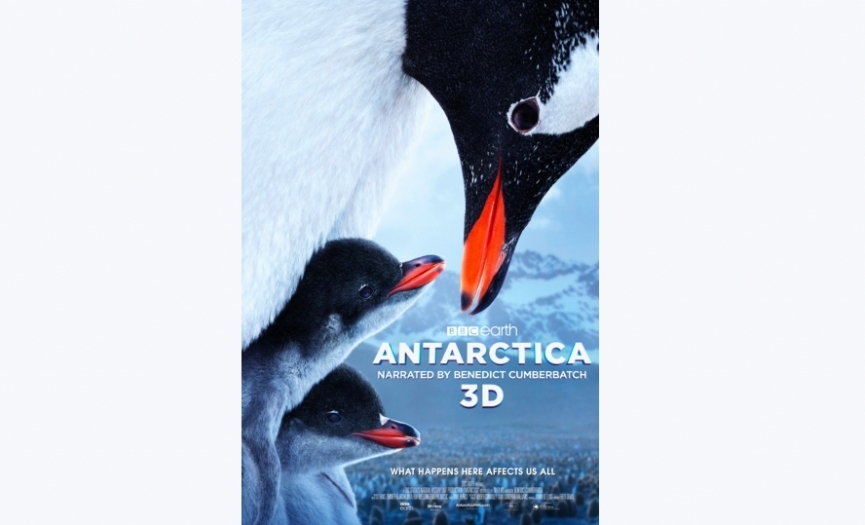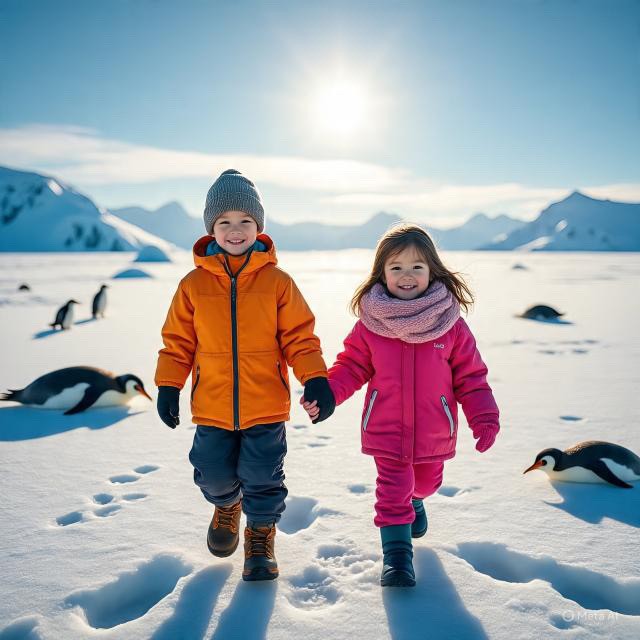
What Happens Here Affects Us All - Antarctica (2025)

By Bessy ADUT
“What happens here, affects us all.” The logline of Antarctica resonates profoundly, and the film delivers on this promise. It is a wonderful journey to the bottom of the world, unfolding like a quiet prayer whispered across oceans. The story follows not just the journeys of activists, but the trembling heartbeat of a planet calling out for our attention. The audience walks beside the camera, guided through grief, resilience, and wonder.
Through stunning cinematography and thoughtful voice-over narration, we are invited into the lives of Antarctica’s remarkable animals and witness their struggle to survive in one of the harshest environments on Earth. The film strikes a delicate balance between drama and humor, evoking both awe and empathy. It is difficult not to feel the weight of climate change and global warming as we watch these creatures face the consequences of our collective choices.
The themes center on the lives of these resilient animals, their survival in extreme conditions, and the broader message about humanity’s impact on the planet. The cinematography is breathtaking—from expansive wide shots capturing vast icy landscapes to intimate close-ups of seals and penguins. Underwater sequences transport us to alien seafloor worlds where purple starfish race against encroaching ice, jellyfish perform a mesmerizing, deadly dance, and fin and humpback whales glide in astonishing congregations. The editing flows seamlessly, and the emotional resonance is undeniable. I found myself moved, wishing I could step into this frozen world myself.
This documentary matters because Antarctica’s fate has global consequences. The film reminds us of the butterfly effect: what happens at the bottom of the world ripples across the planet, affecting oceans, climates, and human life. Light lingers on the faces of animals as if reluctant to leave, framing silence as a sacred language.

As a filmmaker in development for my own feature project Searching for Goodness, I was particularly inspired. The film has sparked ideas for how I might approach interviews in Antarctica, connect with the environment, and learn from crew members experienced in filming in such extreme conditions. Despite its icy setting, Antarctica warmed my heart and stirred a hidden corner of my childhood, reminding me of a longing to explore, to adventure, and to contribute to the care of our planet.
My lasting impression: Watching Antarctica in IMAX 3D at the California Science Center was breathtaking. The immersive experience elevates every moment, from soaring above penguin colonies to diving beneath the ice. Even outside a theater, the film promises a captivating journey for anyone watching on streaming platforms. It is both a visual feast and a contemplative reflection on our world.
Plot Summary:
Journey to a wilderness few have dared to explore—the coldest, driest, and windiest continent on Earth. Swim alongside playful seals, soar above vast penguin colonies, and marvel at the largest gatherings of fin and humpback whales ever filmed. Antarctica reveals the delicate balance of this pristine land and the vital role it plays in regulating ocean currents, sea levels, and carbon storage. Narrated by Academy Award®-nominated Benedict Cumberbatch, the 45-minute documentary uncovers both wonder and urgency in the fight to protect our planet.
Did You Know?
Every year, Antarctica’s surrounding Southern Ocean and its life remove as much carbon from the atmosphere as two Amazon rainforests. The continent also holds 90 percent of the world’s ice, emphasizing its critical importance to the global ecosystem.
Antarctica is a poetic, visually stunning reminder that even the farthest reaches of our planet are deeply connected to our lives—and our choices.
Related News











